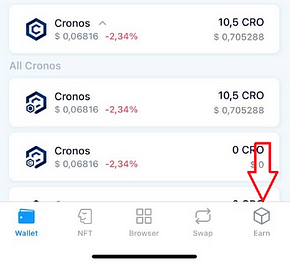Hidden Fish Validator
The HiFi Validator joined the active set of top100 Crypto.org validators at the block height of 9,729,213.

What is a validator?
Crypto.org recently decided to deprecate six of its validators to support the growth of community-hosted validators. Identifying a unique opportunity, the Hidden Fish DAO voted unanimously to launch a new Crypto.org chain validator. We took this step to facilitate further decentralization of the chain and provide the critical infrastructure needed.
Link to the validator: Hidden Fish DAO 

In a blockchain network, validators are responsible for verifying transactions and adding them to the blockchain ledger. Validators play a critical role in maintaining the security and integrity of the blockchain network by ensuring that only valid transactions are added to the chain.
The importance of validators in blockchain networks is significant. They prevent fraudulent or malicious transactions from being added to the blockchain, which can compromise the security and validity of the network. Validators also help to maintain the decentralization and consensus mechanisms of the blockchain by ensuring that no single entity can control the network.
Governance and staking
The primary function of blockchain validators is to validate new blocks of transactions and ensure that they are consistent with the existing blockchain. This is done through a process called consensus, which involves a group of validators agreeing on the validity of the transactions and the order in which they should be added to the blockchain.
Validators may use various consensus algorithms, such as Proof of Work (PoW) or Proof of Stake (PoS), to ensure the integrity of the blockchain. Crypto.org Chain is based on Tendermint Core’s consensus engine, it relies on a set of validators to participate in the proof of stake (PoS) consensus protocol, and they are responsible for committing new blocks in the blockchain.
The staking module enables CRO owners to delegate their tokens to active validators and share part of the reward obtained by the validator during the proof of stake protocol. Specifically, it allows token owners to take part in the consensus process without running a validator themselves.
Community validators are an important element of on-chain governance, as they give voice to the CRO holders, who wish to speak to how the chain ought to develop in the future. The voting power of a validator is equal to their proportion of the total CRO delegated to all active validators in the staking module. Staking thus enables Crypto.org Chain token holders to participate in the decision-making processes through the validator.
Validator rewards
Validators may be incentivized through rewards or fees for their work in maintaining the blockchain network. This helps to encourage participation and ensure the ongoing security and integrity of the blockchain. There are several ways how validators may earn compensation for their work. First there is self-delegation, second commission. A validator may self-delegate CRO to their own node and earn rewards for staking.
The DAO self-delegated 100,000 CRO to the HiFi validator, which means it earns rewards from staking of this sum at the current market rate. The HiFi validator currently earns 5% commission, after a chain-wide update in February raised the minimum fee for all validators. The HiFi validator thus earns a small portion from the delegator rewards annually, based on this formula: Delegations * APR * 0,05.
How to stake CRO
If you’re looking for ways to participate in the blockchain ecosystem and support the growth of a Crypto.com/Cronos platform, staking CRO on the Hidden Fish DAO validator is an excellent option. Follow the steps below to start staking yourself:
- Download the CDC DeFi app from the Google Play Store or Apple App Store.
- Open the app and create or restore your wallet (always make sure to keep your seed phrase safe and never share this with other people)
- Get CRO tokens, you may use the Crypto.com DeFi wallet, Crypto.com Exchange (or other onramp) to buy and transfer your tokens.
Attention: There are two types of CRO tokens: the Crypto.org native CRO (address starts with “cro”) and the CRC20 CRO (address starts with “0x”). In order to stake on Crypto.org you need the CRO native token, not CRO on Cronos.
4. When in the Defi AppTap on “Earn.” Select “Cro Staking” from the available options.

5. Select amount of CRO you want to stake, and “Hidden Fish DAO” from among the validators.
Confirm, sit back, and enjoy!
